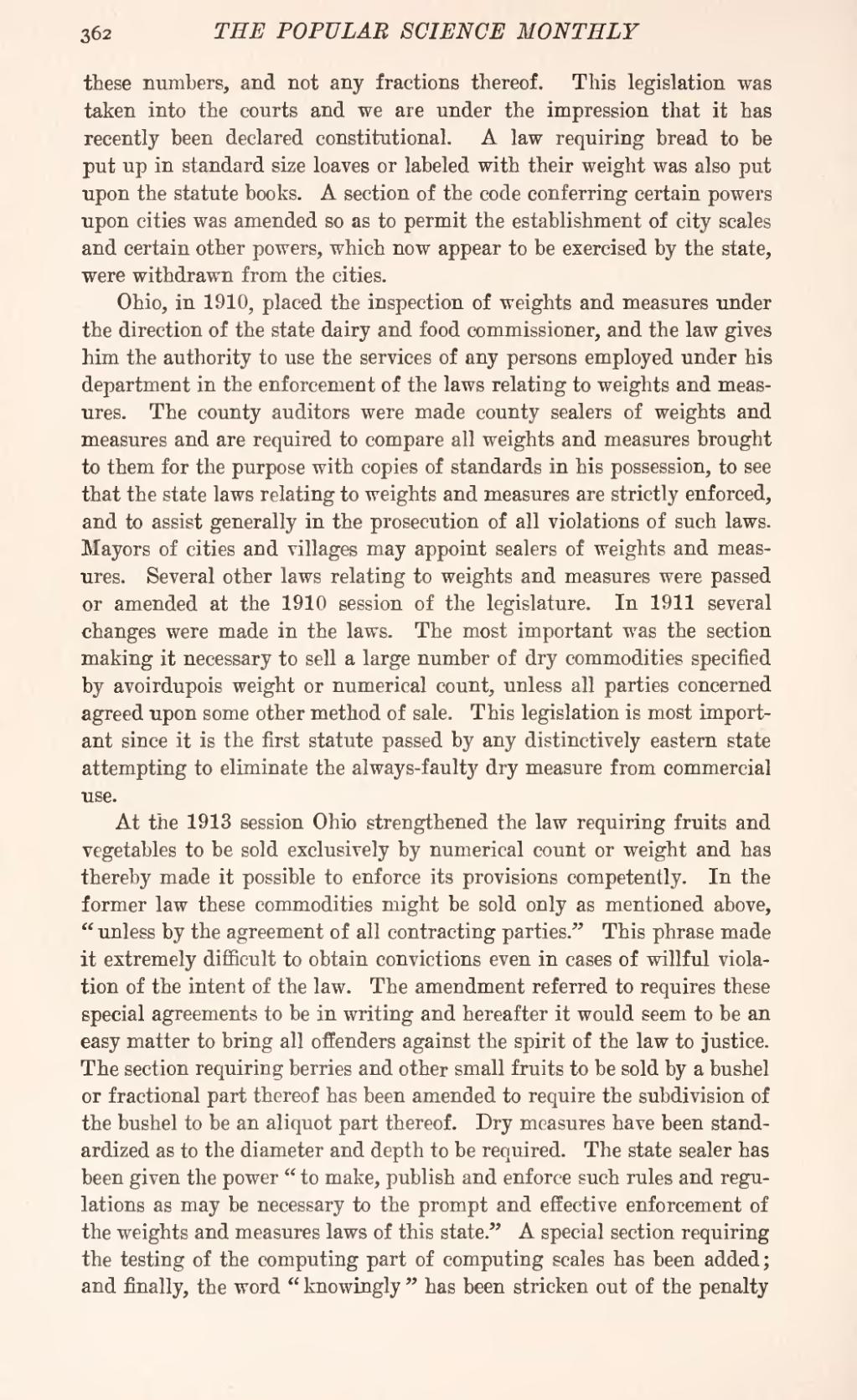these numbers, and not any fractions thereof. This legislation was taken into the courts and we are nnder the impression that it has recently been declared constitutional. A law requiring bread to be put up in standard size loaves or labeled with their weight was also put upon the statute books. A section of the code conferring certain powers upon cities was amended so as to permit the establishment of city scales and certain other powers, which now appear to be exercised by the state, were withdrawn from the cities.
Ohio, in 1910, placed the inspection of weights and measures under the direction of the state dairy and food commissioner, and the law gives him the authority to use the services of any persons employed under his department in the enforcement of the laws relating to weights and measures. The county auditors were made county sealers of weights and measures and are required to compare all weights and measures brought to them for the purpose with copies of standards in his possession, to see that the state laws relating to weights and measures are strictly enforced, and to assist generally in the prosecution of all violations of such laws. Mayors of cities and villages may appoint sealers of weights and measures. Several other laws relating to weights and measures were passed or amended at the 1910 session of the legislature. In 1911 several changes were made in the laws. The most important was the section making it necessary to sell a large number of dry commodities specified by avoirdupois weight or numerical count, unless all parties concerned agreed upon some other method of sale. This legislation is most important since it is the first statute passed by any distinctively eastern state attempting to eliminate the always-faulty dry measure from commercial use.
At the 1913 session Ohio strengthened the law requiring fruits and vegetables to be sold exclusively by numerical count or weight and has thereby made it possible to enforce its provisions competently. In the former law these commodities might be sold only as mentioned above, "unless by the agreement of all contracting parties." This phrase made it extremely difficult to obtain convictions even in cases of willful violation of the intent of the law. The amendment referred to requires these special agreements to be in writing and hereafter it would seem to be an easy matter to bring all offenders against the spirit of the law to justice. The section requiring berries and other small fruits to be sold by a bushel or fractional part thereof has been amended to require the subdivision of the bushel to be an aliquot part thereof. Dry measures have been standardized as to the diameter and depth to be required. The state sealer has been given the power "to make, publish and enforce such rules and regulations as may be necessary to the prompt and effective enforcement of the weights and measures laws of this state." A special section requiring the testing of the computing part of computing scales has been added; and finally, the word "knowingly" has been stricken out of the penalty
